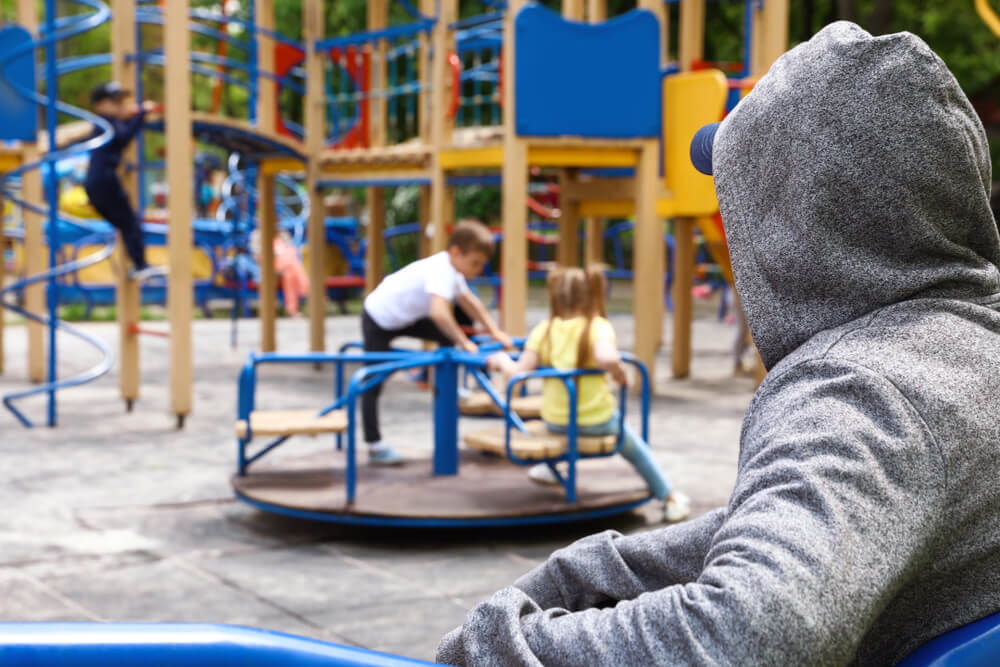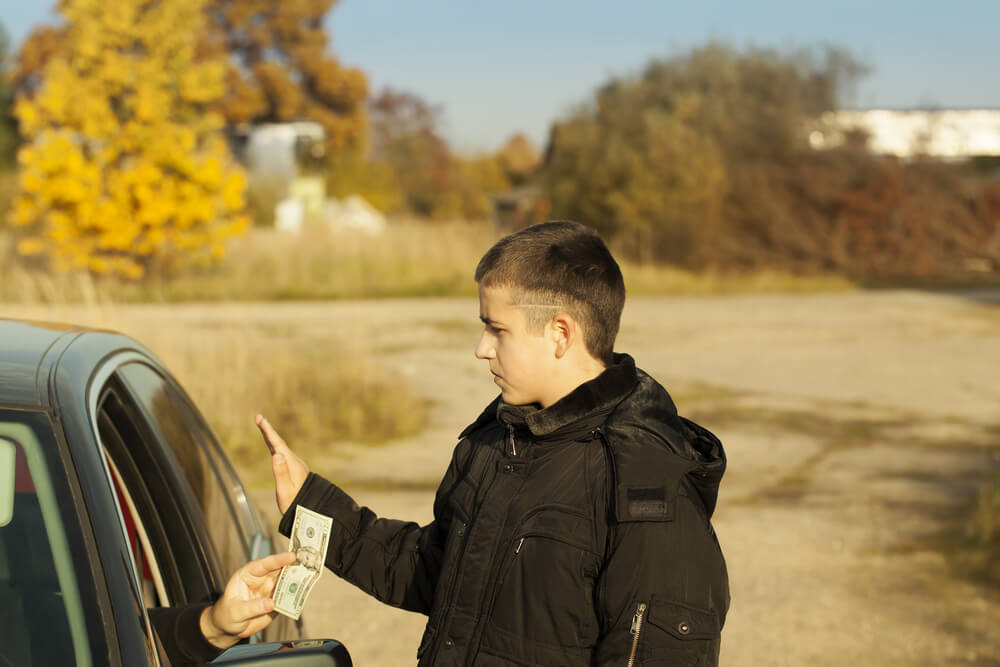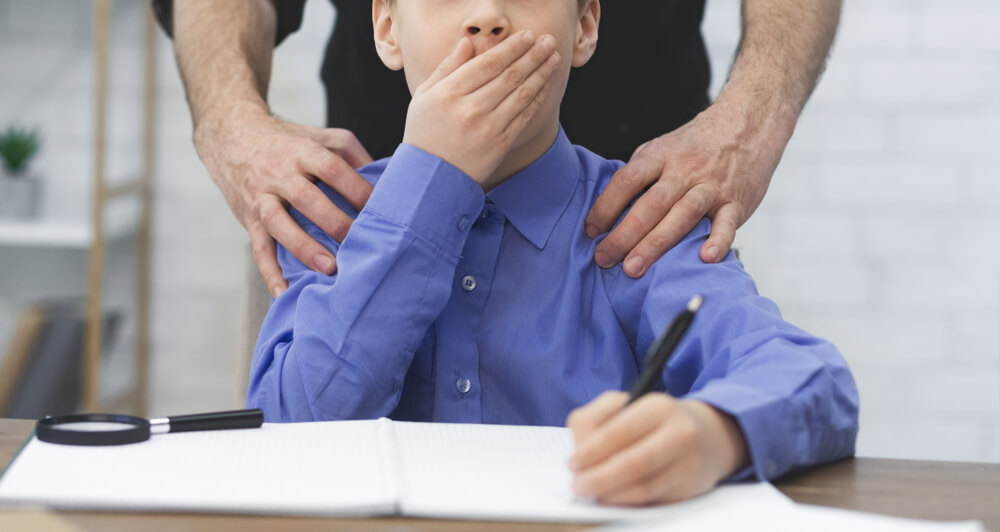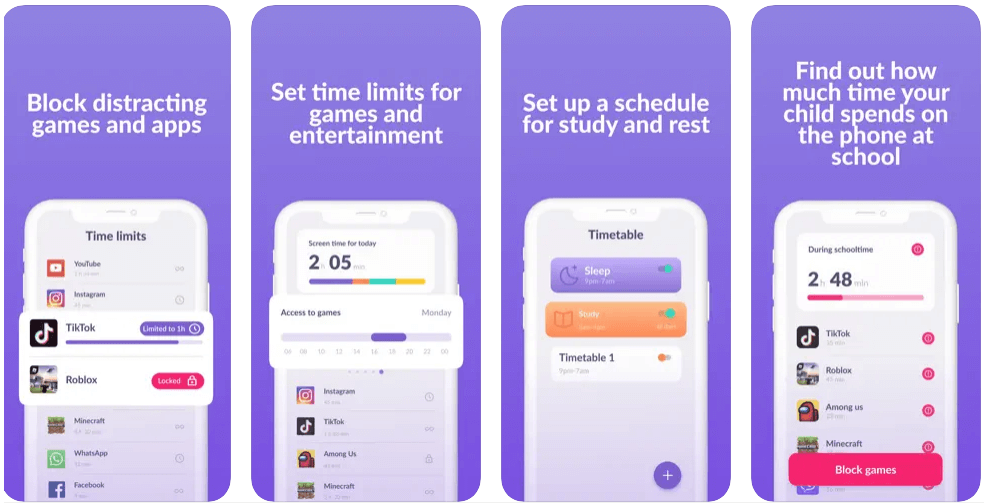15 Warning Signs That Help to Identify a Child Predator

We all want to keep our children safe. Unfortunately, not everyone has good intentions toward them—and that inappropriate behavior can often manifest in the form of pedophilia.
Pedophiles are child predators, sometimes referred to as child molesters, who prey on innocent children with harmful intentions. As a parent, it’s crucial that you know the warning signs of a pedophile to keep your child safe.
In this blog post, we’ll be discussing the top 15 pedophile warning signs that can help you identify a child predator—before it’s too late.
Contents:
Tools to Help Address the Problem
Before diving into the warning signs, it’s crucial to know about some valuable tools that can aid in ensuring your child’s safety and well-being. These tools can help monitor your child’s environment and provide peace of mind for parents.
| Tool | Description | Benefits | How It Helps Against Child Predators |
| Findmykids | A child GPS tracker app that helps you know your child’s location at all times. | — Real-time location tracking — SOS button for emergencies — Monitor surroundings and child’s movement history — Safe zones and alerts when child leaves them |
— Alerts parents if the child enters unsafe areas — Provides a quick way for children to signal for help — Allows parents to know where the child is supposed to be, reducing the risk of unsupervised encounters with predators |
| Kids360 | An app that helps monitor your child’s online activity and usage. | — Keeps track of apps and screen time — Sets limits on usage to promote healthy habits — Provides insights into the child’s online behavior — Ensures safe browsing and guards against harmful content |
— Monitors online interactions to identify potential grooming behaviors — Blocks harmful or inappropriate content — Allows parents to track communication and recognize suspicious or dangerous contacts early on |
Top 15 Pedophile Warning Signs

New Africa/Shutterstock.com
Child sexual abuse is a problem that affects millions of families worldwide.
According to experts, 1 in 4 girls and 1 in 6 boys will experience some form of sexual abuse before they turn 18 years of age. This is a staggering statistic that highlights the need for parents and caregivers to be vigilant and alert.
Pedophiles are often strangers, but they can also be people you know and trust, including teachers, coaches, and religious leaders. Here are some warning signs to watch out for.
1. Unusual Interest in Child Activities
One of the most apparent warning signs of a child predator is an unusual interest in children’s activities. If a person shows a keen interest in your child’s activities, such as sports, school functions, or other extracurricular activities, you need to be wary.
Child predators often use this as a way to get closer to their victims and establish trust. If someone takes an unusual interest in your child, it’s essential to ask questions and ensure that their intentions are pure.
2. Tries to Stay Alone With a Child
If a person insists on spending time alone with your child, it’s a red flag to watch out for. An adult predator will use this opportunity to exploit children and abuse them in unspeakable ways. They typically try to build trust by luring the child with gifts or activities they enjoy to gain alone time.
Teach your child the importance of not staying alone with anyone, regardless of how trustworthy they appear.
3. Odd Friendships With Vulnerable Kids
These relationships appear unusual and inappropriate for an adult to have with a child. They may befriend children, offering them gifts and involving them in activities to get closer to them.
If you notice an unusual friendship between your child and an adult, it’s crucial to investigate further and observe their interactions.
4. Signs of Grooming

Stock video footage/Shutterstock.com
Pedophiles often use grooming techniques to establish a relationship of trust and dependence with their victims. They may offer special attention, gifts, or even money to the child as a way of building rapport.
As a parent, you should be on the lookout for any unusual behavior or gifts from adults who spend time with your child. You should also be suspicious if your child suddenly becomes withdrawn or secretive about their interactions with certain adults. Knowing how to identify grooming behavior can be vital.
5. Mental or Mood Disorders
Many child predators suffer from mood disorders or mental illnesses that can make them more likely to engage in harmful or abusive behaviors. If you notice that an adult who spends time with your child has erratic mood swings, extreme anger, or other signs of mental instability, it’s important to take note and keep a close eye on their interactions with your child.
6. Use of “Angelic” Terms to Describe Kids
Some pedophiles use terms like “angelic” or “innocent” to describe children in a way that sexualizes them. If you hear an adult using these types of terms to describe your child or others, it’s important to investigate further.
You should also be cautious of adults who take a special interest in your child’s physical appearance, including praising their beauty or commenting on their body in a way that seems inappropriate.
7. Asking for Personal Information

Olimpik/Shutterstock.com
Pedophiles often try to build relationships with children online, using social media and other online platforms to connect with them. They may ask for personal information such as their name, age, or location, as a way of getting closer to them.
As a parent, it’s important to monitor your child’s online activity closely and teach them to be wary of any requests for personal information or attempts to arrange in-person meetings.
Related: Dangerous Apps’ List for Kids and Tweens.
8. Knowing a Lot of Information About Your Child
Pedophiles often try to gain the trust of a child by getting to know them personally. They may ask many questions about their interests, hobbies, and their family life. This is one of the most obvious symptoms and warning signs of child predators.
If someone you do not know very well seems to know an unusual amount of information about your child, it is essential to take notice and be cautious. This behavior can be a warning sign that should not be overlooked, especially if the person has no real connection to your family.
9. Giving Lots of Gifts
Pedophiles may use gifts as a way to get children to trust them. They often choose children who have a difficult home life and lack attention or affection.
If someone is consistently giving your child gifts that they cannot explain, it may be a red flag that something is not correct. As a parent, it is essential to be vigilant and to explain to your child that they should not accept gifts from strangers or people who they do not know very well.
10. Asking Your Child to Lie or Keep Secrets
Predators will often ask children to keep their relationship a secret. They may tell children that their relationship must be kept private as it is special or unique. If your child is being asked to keep a secret, it’s crucial to ask them what the secret is and who is asking them to keep it.
You need to explain to your child that they can always talk to you or another trusted adult about anything and should not be afraid to do so.
11. Excessive Physical Contact

Prostock-studio/Shutterstock.com
Pedophiles may touch children frequently or inappropriately as a way to desensitize them to physical contact. As a parent, it is essential to be aware of the physical boundaries your children feel comfortable with and ensure that it is respected.
If you notice that someone is making your child uncomfortable or is touching them in ways they do not like or understand, it is essential to intervene and investigate the situation further to prevent any sexual behavior from occurring. Inappropriate touching is one of the most obvious sayings of predatory behavior.
12. Ignoring Boundaries
One of the most common signs of a predator is ignoring boundaries. For example, they may try to touch your child or interact with them in ways that are inappropriate. They may also try to isolate your child from you or their other friends and close family members.
They may try to take your child out alone or spend time with them one-on-one without your permission. It’s important to pay attention to these warning signs and intervene if you see something that makes you uncomfortable.
13. Pitting Your Child Against You
Another tactic that predators may use is to try to create a rift between you and your child. They may tell your child that you don’t understand them or that you’re too strict.
They may try to convince your child that they are the only person who truly understands them and can be trusted. This kind of manipulation and controlling behavior can make it easier for predators to get closer to your child and potentially harm them.
14. Watching or Interested in Viewing Child Pornography

Tanawit Sabprasan/Shutterstock.com
Pedophiles often consume child pornographic material as it fuels their perverse desires. If you find any inappropriate web search history or websites on any of your electronic devices, it’s time to investigate who the person is who views child pornography, sexual images, or adult movies.
In such situations, you must immediately report this sexual interest to the authorities, as it’s a severe offense that can lead to prosecution.
15. Using Inappropriate Language
A final warning sign to watch out for is the use of inappropriate language. Predators often use sexual language or innuendo when talking to children, even if they try to hide it in joking or playful ways.
They may also try to introduce your child to pornographic material or other inappropriate content. Be aware of the kinds of conversations your child is having with any adults in their life and be ready to have a talk with them if you notice anything suspicious.
How to Protect a Child from a Predator

Roman Chazov/Shutterstock.com
Predators can come in many forms, ranging from strangers online to people in your neighborhood. The average parent thinks it won’t happen to them—but it can.
Parents must be proactive to safeguard their children from potential harm—here are some tips.
1. Look Out for Pedophiles in Your Neighborhood
It’s unsettling to think that a predator may be lurking in your area, but the reality is that child predators are out there, and they prefer residential areas where they can blend in and prey on children. They often gravitate towards parks, playgrounds, and anywhere children gather.
As a parent, observe your surroundings and be cautious of any unusual behavior in your locality. If you notice anyone lurking around the playground or staring at children, report it to the authorities.
Teach your children not to talk to strangers, especially those not their own age, and to inform you if they see or experience anything suspicious.
Read also Talking to Kids about Strangers.
You can also view a list of nearby registered sex offenders with tools like Neighborhood Watch Dog.
2. Supervise Your Child’s Activities
Know your child’s whereabouts and who they associate with at all times, especially when they’re not with you. Predators choose their victims based on vulnerability and easy access, so parents must supervise their children’s activities.
After-school activities, sports practices, or playdates should be in safe environments with adult supervision. If your child uses social media, be aware of who they interact with online. Set boundaries and assert your authority as a parent to limit unsupervised online communication.
To ensure the safety of your child even when you’re not around, be sure to install the Findmykids app. With it, you’ll know your child’s current location and the route they’re taking. You can even listen to the sounds around them, receive notifications if they leave a safe zone, and provide them with an SOS button in case of danger. Try the app today and give your child complete safety!
3. Teach Your Children About Practicing Online Safety
The internet is a vast space with its share of dangers, including predators, scammers, and identity thieves. Kids today have grown up in the digital age, and they cannot imagine life without smartphones, tablets, and PCs.
It’s your responsibility to educate your child about online safety. Teach your kids not to share personal information, avoid chat rooms, stay away from strangers online, and report any suspicious messages or behavior to you. Set strict rules about screen time and usage habits, and monitor their online activity.
4. Make Sure Your Child Feels Emotionally Supported

fizkes/Shutterstock.com
Paying attention to your kid’s emotional health is as important as their physical health. Ensure that your child has a positive self-image, social skills, and the ability to express their thoughts and emotions. Children with high self-esteem and healthy communication patterns are less susceptible to being deceived or manipulated.
5. Be Involved
Be aware of what your child is doing, whether they are at home or away from home. Join a parent’s committee, volunteer at school, and involve yourself in your child’s life. By doing this, your child will know you are interested in, and concerned with, their welfare and the child’s safety.
6. Set Boundaries
Teaching kids about boundaries prepares them to feel comfortable speaking up if they feel uncomfortable in any situation. It involves teaching them how to set their own boundaries and that they have the right to say “no” to anyone who they feel is infringing those boundaries.
7. Trust Your Gut
Clear-headed parents are much more likely to keep their children safe and spot a child in danger. Trust your instincts, and if something feels off, listen to it—don’t write something off as typical teenage behavior if it makes you uncomfortable.
This way, you can implement the necessary measures to protect your child from a sexual predator.
8. Use the Kids360 App
Kids360 is a cutting-edge child parental control app designed to oversee, monitor, and protect your child from internet dangers. It features options that give you control over your child’s digital footprint while at the same time keeping you informed and secure. You can keep track of what your vulnerable children are doing—and prevent a child abuser from gaining entry into your child’s life.
Final Thoughts
Child abuse is a devastating crime that can have lifelong consequences for its victims.
As parents and caregivers, we must do everything in our power to keep our children safe. It is important to be aware of the warning signs of pedophiles and to maintain open communication with our children.
We can protect our children by knowing who they are spending time with, teaching them about personal boundaries, and educating them about what is and isn’t acceptable behavior. If you have any suspicion of child sexual abuse or sexual assault, report it to the relevant authorities immediately.
Remember, it takes a village to protect a child—and we each have an essential role to play.
FAQ

Valeriya Popova 22/Shutterstock.com
What is a pedophile?
Pedophilia is a sexual preference and attraction towards prepubescent children who are under the usual age of legal consent. Having pedophilic desires doesn’t necessarily mean that the person has acted on them, nor do all pedophiles abuse children.
What makes someone a pedophile?
Pedophilia is in a category of neurological mental disorders that results from a multitude of factors, including environmental and genetic factors. For example, specific brain abnormalities have been identified in some pedophiles, while others may have experienced childhood trauma, or sexual abuse at an early age, or have not developed the social skills or healthy sexual development needed to form sexual relations with peers their age.
Is pedophilia more typical among men or women?
Research studies show that pedophilia is more common in men than women. However, it’s crucial to note that not all men who are attracted to children are pedophiles, and not all pedophiles are men.
What to do if a child has been abused?
In cases where a child has been sexually abused, the most important thing is to prioritize the child’s safety and well-being. It’s essential to listen patiently and support them emotionally and to report the situation to the proper authorities—medical attention is also necessary to identify potential sexually transmitted infections.
Can pedophilia form in an adult who has been drawn to adults?
Pedophilia can develop in an adult who has only ever been attracted to other adults before. Pedophiles may also be active members of a community, or a family or hold positions of authority such as educators, counselors, or religious leaders.
What should you do if you suspect someone close to you is a pedophile?
Recognizing the signs that someone you know and love may be a pedophile can be very confusing. It’s best to encourage open communication, and if needed, seek professional assistance to handle the situation effectively.
The picture on the front page: HTWE/Shutterstock.com
Проверьте электронный ящик





















